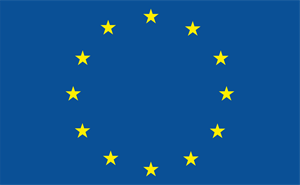European VAT Changes - What You Need to Know
On 1st July 2021, in a tightening up of VAT rules, the EU is implementing changes to European VAT that affect online sellers. This article tells you what you need to know.

What is the position today?
VAT must be paid on goods imported into the EU. The rate of VAT is determined by the buyer’s location. For example, goods imported into Germany will be liable for the 19% standard German VAT rate. Goods are not released from customs until the VAT payment is settled.
At present there is an exception to this rule – imported goods valued below €22 are exempt from VAT. This exemption mainly affects e-commerce purchases by EU consumers from non-EU sellers.
What changes are being made?
From 1 July 2021, the EU will scrap the exemption. VAT will be due on all business-to-consumer imports from outside the EU. The rate of VAT will still be determined by the buyer’s location. As part of the changes, the EU has created the Import One-Stop Shop (IOSS). IOSS will allow non-EU e-commerce sellers to collect VAT at the point of sale. The scheme only applies to goods valued less than €150. If sellers choose not to use the scheme, the importer will collect VAT.
Why is the EU making these changes?
The changes aim to end discrepancies between the VAT rates charged on imported goods and domestic goods. Fairness is part of the reason for the changes. The EU Commission also hopes to reduce the incidence of VAT-related fraud. In addition the IOSS scheme aims to streamline the entire process for non-EU businesses.

Photo by Ibrahim Boran on Unsplash
What do the changes mean for non-EU businesses?
The changes are most important for non-EU sellers. Consumers will now pay VAT on previously exempt purchases, and this may affect pricing decisions. The IOSS scheme will bring benefits though. For example, a US-based seller may no longer need to register for VAT in each EU country. Businesses who are quick to adapt to the new regulations will benefit the most.
Do the changes affect the UK?
Since the end of the Brexit transition period on 1 January 2021, the UK is no longer part of the European single market or customs union. VAT regulation in the UK is now separate from the EU. Despite this, both markets remain closely aligned. The UK made similar changes to their VAT regime at the start of 2021. For more information about that, you can read our dedicated article here.
What do I need to do?
If you have a website supplying EU consumers from outside of the EU, the changes are likely to affect you. However, they are designed to be understood and administered without any specialist knowledge. You can find more information on the EU website. There is also an article about IOSS. If you are in any doubt about how these changes might affect your business you should talk to a tax adviser.

